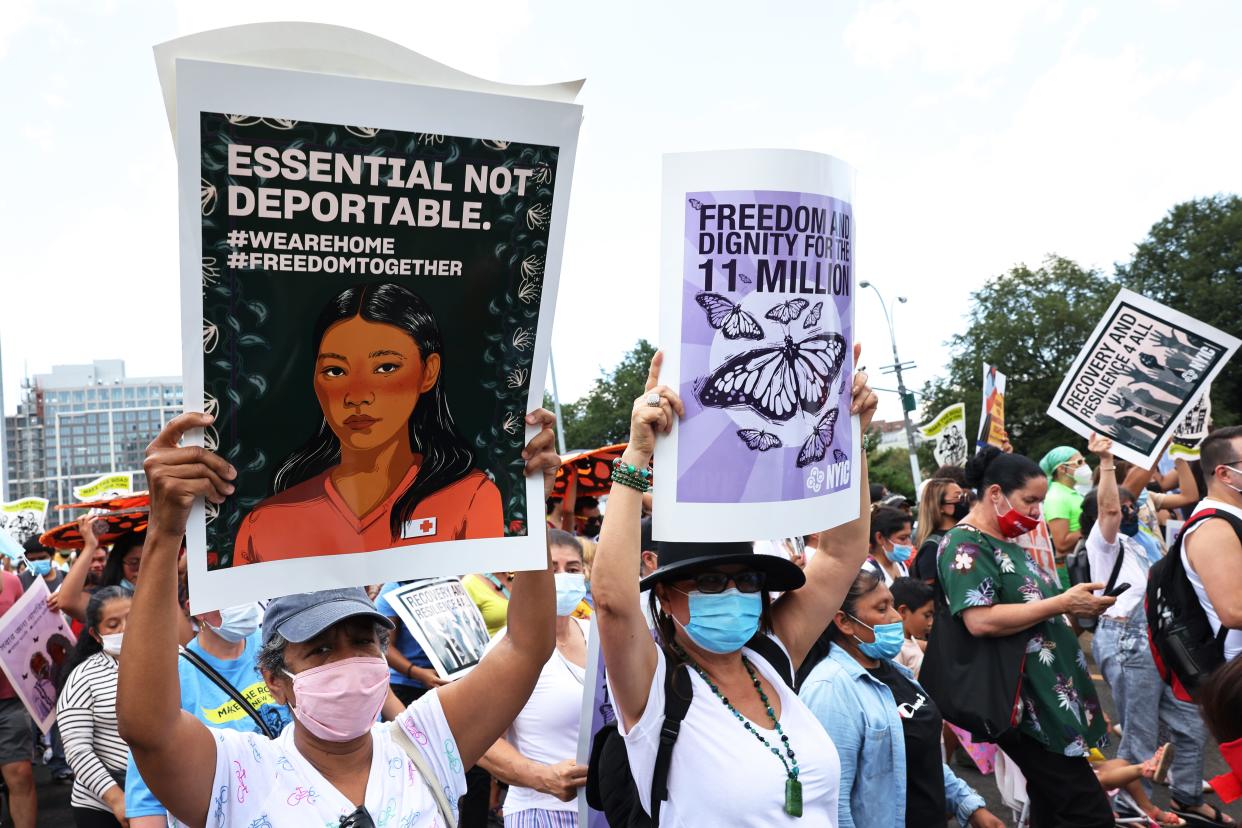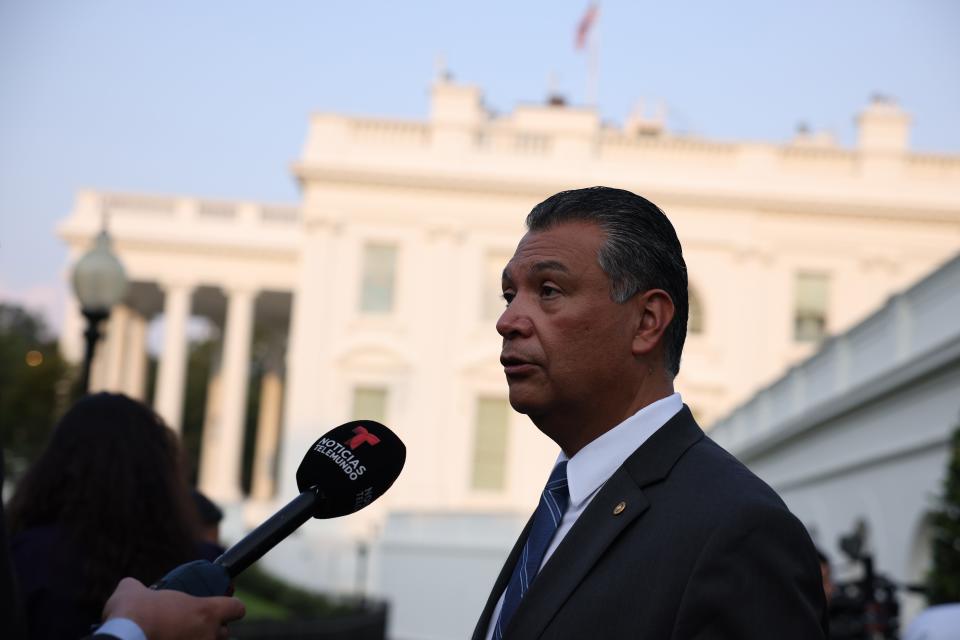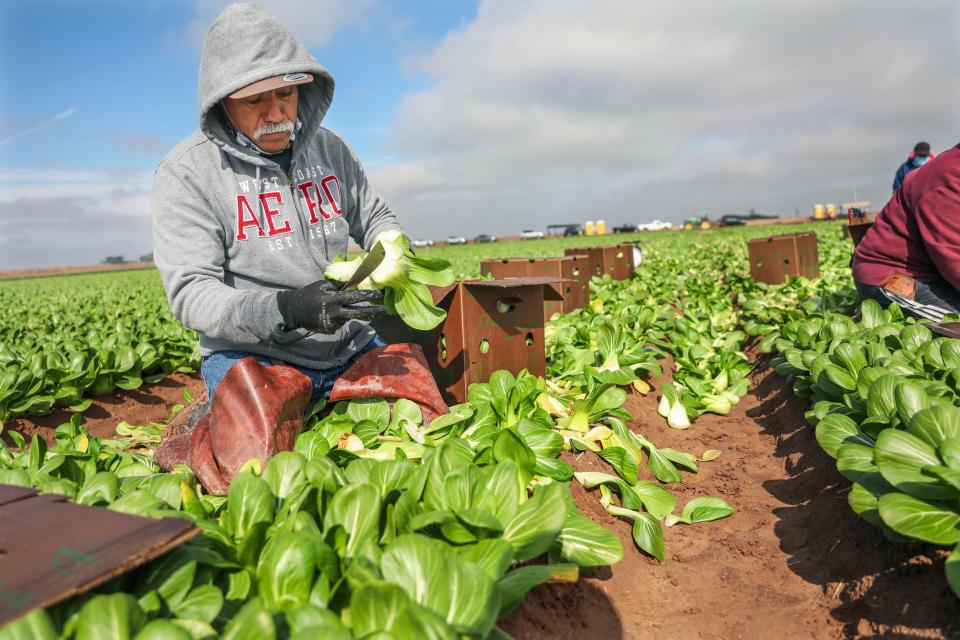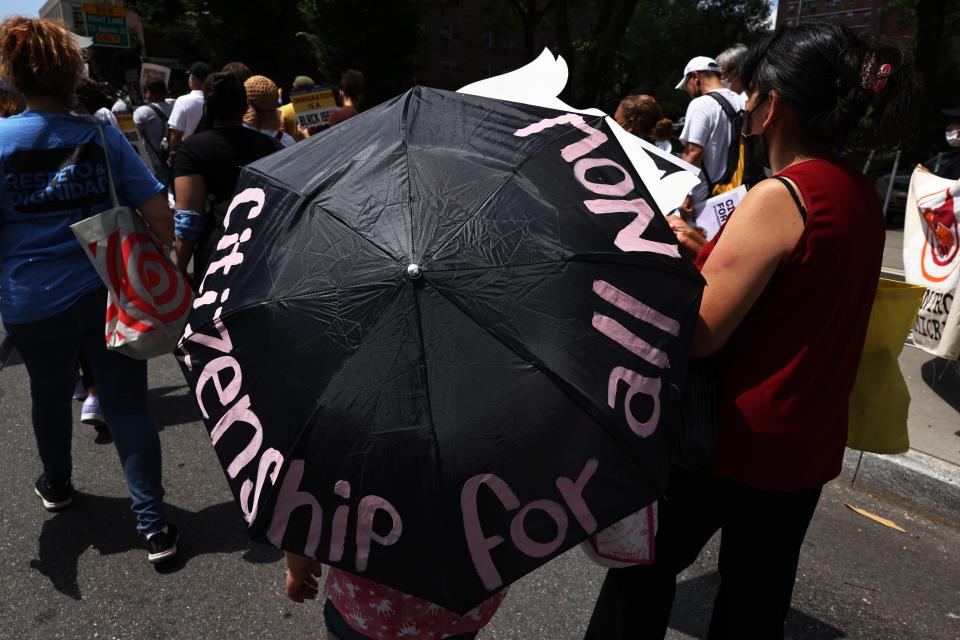Could sweeping changes be coming to immigration laws? Advocates hope budget bill is the answer

- Oops!Something went wrong.Please try again later.
WASHINGTON – For decades, lawmakers and immigrant advocates have been working to pass immigration reform on Capitol Hill, often looking to pass bipartisan legislation to extend protections and pathways to citizenship for farmworkers and those who are undocumented.
Success has been elusive, but advocates and some members of Congress see the $3.5 trillion budget bill that Democrats and President Joe Biden want to pass this fall as one of their best bets of passing sweeping changes to the nation's immigration laws.
Democrats are hoping to include in the bill pathways to citizenship for people who were brought to the United States as children and do not have legal status, also known as Dreamers, in addition to farmworkers and essential works. But including such a provision may be an uphill battle.
Not only will Democrats need support from all Democrats – including moderates – the provision would also need to be accepted by the Senate parliamentarian, a chamber official who could strike the provision from the bill if it doesn't meet certain rules.
2022 elections: Texas abortion law could hurt Republicans in 2022 midterm elections, experts say
“This is a critical moment for immigration reform and the reconciliation process provides us with a unique opportunity to deliver on long overdue reforms,” said Sen. Alex Padilla, D-Calif., who is a lead advocate in getting immigration into the package.
The Senate in August approved the framework to include a pathway to citizenship for eligible immigrants. But the legislation does not specify who will be included for a pathway to citizenship. However, the House’s version of the framework included a provision that would provide a pathway to citizenship for Dreamers, farmworkers, individuals who have Temporary Protected Status and essential workers, such as grocery and transportation workers.

According to the Center for American Progress, providing a pathway to citizenship for Dreamers and undocumented essential workers would boost the GDP by a total of $1.5 trillion over 10 years and create more than 400,000 new jobs.
Lawmakers are now planning to move onto the next steps of the bill, which includes bringing it to Senate Parliamentarian Elizabeth MacDonough.
MacDonough is important because she decides on whether provisions in the bill are allowed to be considered in the reconciliation process, a legislative maneuver being used by Democrats to pass the bill without Republican support.
Sen. Joe Manchin: Manchin in op-ed says Democrats should 'pause' on their $3.5 trillion budget plan, citing concerns over inflation
The reconciliation process allows the Senate to pass legislation on taxes, spending and the debt limit with only a simple majority, rather than the 60 votes that are needed to avoid a filibuster. The parliamentarian’s job is to make sure that no “extraneous” provisions are included in the legislation.
Padilla, the chairman for the immigration subcommittee for the Judiciary Committee, said that he and his colleagues over the past few weeks have been meeting regularly “to finalize proposals to bring to the parliamentarian to include in reconciliation.”
“ I believe we have a compelling case – providing a pathway to legal status is a direct government action with significant budgetary impact," Padilla said.
Lawmakers and advocates are optimistic a pathway to citizenship will be approved by MacDonough.
“I have always said that Democrats should not foreclose any legislative option that would allow us to secure a pathway to citizenship for millions of undocumented immigrants across the country, including Dreamers, TPS recipients, farmworkers, and essential workers. And that’s exactly what we’re doing by seizing this moment," Sen. Bob Menendez, D-N.J., said in a statement to USA TODAY.
Republicans, who overwhelmingly oppose the broader bill, have voiced they do not want to see immigration included.
'Unprecedented number': Migrant encounters at southern border topped 200,000 in July
Sen. John Cornyn, R-Texas, said during a Judiciary Committee hearing in June that legalizing immigrants through reconciliation "almost surely will not work, consistent with the rules of the Senate."

It's unclear as to how many groups of undocumented immigrants will be included in the final package. Democrats have advocated for Dreamers, recipients of Temporary Protected Status, farmworkers and essential workers to be included in the bill. But Democrats are preparing for a back and forth between the parliamentarian and lawmakers on who can be included in the bill.
"We are pushing to get as much as possible through the reconciliation process, and are confident in the arguments we have prepared for the parliamentarian," Menendez said.
The parliamentarian has stripped bills of provisions before. MacDonough earlier this year shot down a gradual increase of the federal minimum wage to $15 an hour in the American Rescue Plan, a $1.9 trillion COVID stimulus package that eventually became law.
To include a pathway to citizenship for some undocumented immigrants, the provision would likely be tested to see if it passes the Byrd rule, which prohibits the Senate from including extraneous provisions in reconciliation bills.
But immigration advocates don't have to just worry about the parliamentarian.
Moderate Democratic Sens. Joe Manchin of West Virginia and Kyrsten Sinema of Arizona have already come out against the bill's $3.5 trillion price tag. Democrats can't afford to lose votes if they hope to pass the bill in the split Senate without Republican support.
Manchin said earlier this summer he would support including a pathway to citizenship for some undocumented immigrants in the reconciliation bill.

Despite moderate Democrats' concerns over how large the reconciliation package is, immigration activists said this is the best time to pass any sort of immigration reform.
"We're going to find a way to get to yes," said Frank Sharry, executive director of America's Voice. "If the first approach isn't working very well then there's other approaches that can be rolled out. We believe we have a strong case to get to yes, so we're expecting a greenlight, a breakthrough and dancing in the streets."
Sharry noted that the package will also likely include money that would address security and improvements at the U.S.-Mexico border, as well as the pathway to citizenship. Including money for border improvements could ease some of the hesitancy from more moderate Democrats.
Sinema earlier this year introduced a bipartisan bill with Cornyn that would add additional processing facilities, as well as more border patrol officials and immigration judges to address the large number of migrants coming to the U.S.
"I think you may see at the end of the day, a package that combines border improvements with a path to citizenship for millions. I think that is the kind of package that is likely to consolidate the support," Sharry said.
If the reconciliation package with immigration reform passes, Democrats could see trouble down the line during the midterm elections, Sharry warned.
"a lot of new and infrequent voters turned out in 2018 and 2020. If it turns out that people who voted for the first time, see Democrats as not being able to follow through on their commitments to go big and to change lives, then it could hurt turnout," he said.
Reach Rebecca Morin at Twitter @RebeccaMorin_
This article originally appeared on USA TODAY: Immigration laws up for sweeping changes? Why budget bill is critical.

